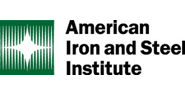Market Data

November 17, 2020
AISI on the New Administration: "We'll Make Our Voice Heard"
Written by Tim Triplett
Kevin Dempsey, Interim President and Chief Executive Officer of the American Iron and Steel Institute, is confident the industry trade association will be able to work productively with the incoming Biden administration in pursuit of the steel industry’s goals.
“Obviously there will be a change in personality and personnel in key positions, but at the fundamental level the ultimate goal is the same—to try to eliminate the overcapacity that is at the heart of the international steel crisis, with a continued emphasis on strong trade enforcement.”
Dempsey pointed to an October report from the Global Forum on Steel Excess Capacity in which 29 trade ministers from around the world all warned of a huge and growing overcapacity problem, particularly in China. China is setting new records for steel production while the rest of the world is seeing declines due to the COVID pandemic. There is also evidence that China is building up inventories, which could be destructive to global trade if they were suddenly dumped onto the world market, Dempsey said.
AISI continues to advocate for the Section 232 tariffs on steel imports and is hopeful the Biden administration will maintain them. “Biden has said that upon entering office he will review the tariffs in place. We feel any honest policy review will strongly justify continuing those tariffs. I would argue to a new administration that if you just lift those tariffs without addressing the underlying overcapacity problem, you are inviting a new surge of imports into the U.S. that could be devastating to the U.S. industry and U.S. steelworkers.”
AISI is optimistic the change of administration will improve the chances for passage of a major infrastructure package that will help stimulate demand for steel in 2021 and beyond. “There is strong bipartisan support in Congress for the trade and infrastructure policy priorities that the steel industry has been advocating for,” Dempsey said. “The economic situation caused by COVID is the type of major shock that tends to focus administrations and Congress on the need for action on stimulus measures.”
One major difference between the Trump and Biden administrations is how they prioritize environmental issues. Will the new administration’s plans to move climate change up the agenda put fresh scrutiny on emissions generated by the steel industry? AISI believes U.S.-made steel is part of the solution and calls for a balanced approach to environmental regulation. Steel is an essential material for building a green energy economy, Dempsey said, including windmills, solar arrays and mass transit. Steelmaking in the U.S. produces fewer GHG emissions than most other countries because the U.S. is home to a higher percentage of EAF mills that remelt scrap. “We want to make sure that whatever measures are put in place, they do not penalize the U.S. steel industry, which is the cleanest in the world,” he said.
The steel industry clearly had the ear of President Trump, with former steel executives in official and advisory capacities within his administration. Will that change with the new president? “I am not concerned that we won’t have access to policymakers in a Biden administration,” Dempsey said. “We pride ourselves on being able to work with anybody on a bipartisan basis. We worked with them at the highest levels in the Obama administration. We will have the same ability to make our voice heard.”







